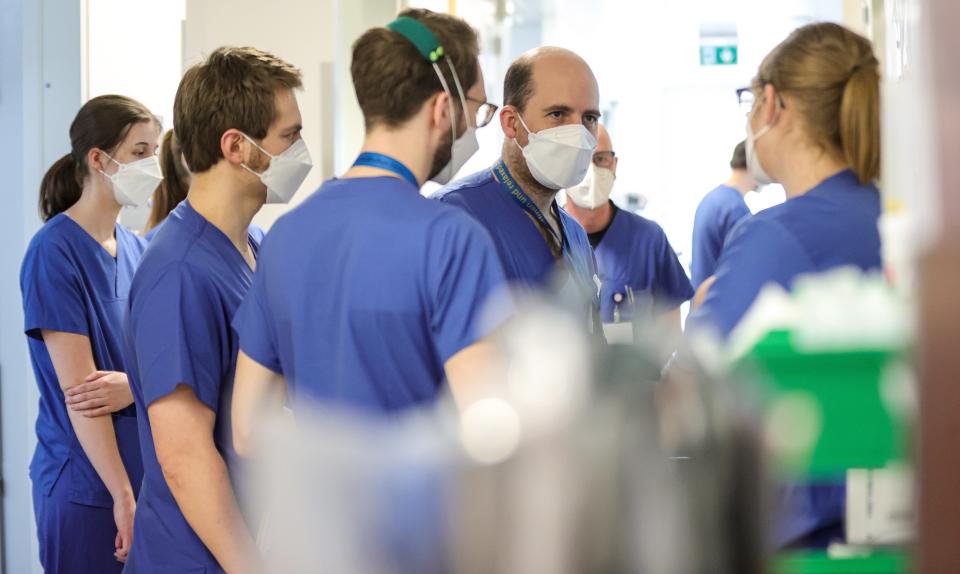Thousands of doctors and nurses being pressured to work extra hours unpaid

NHS staff are being expected to work extra hours unpaid
(EPA)Thousands of doctors and nurses in the NHS are being put under pressure to work unpaid overtime as reports of fatigue after the Covid pandemic increase.
Concerns for the wider health of the NHS’s 1.3 million workforce have grown since the coronavirus crisis, with fears many could leave their roles at a time when staff shortages are growing.
Although a national survey has shown staff wellbeing and motivation has held up, some doctors and nurses report increasing pressure from NHS trusts to do work extra hours.
As the threat of coronavirus recedes health service bosses are keen to tackle backlogs in operations and treatments delayed during the Covid surges.
The total NHS waiting list is now at a record 4.7 million patients with at least 350,000 people waiting longer than a year.
In a survey of 5,500 doctors last month, the British Medical Association found 58 per cent had worked extra hours with more than a quarter, 28 per cent saying they were unpaid. More than two-fifths of doctors said the felt pressured by their employer to do extra hours.
A third of medics said they had skipped breaks with 60 per cent reporting a higher than normal level of fatigue.
Consultant ear, nose and throat surgeon Ram Moorthy, from Berkshire, said: “We haven’t had a break since the first wave, we're being asked to do a lot of additional work to catch up and I honestly don’t know how long the workforce can continue working beyond maximum effort. The fact is, it’s going to take a lot more than shattered doctor’s goodwill for the health service to get through these backlogs.”
In July last year the Royal College of Nursing found a third of all nursing staff were working longer hours with 40 per cent not being paid for their time.
Liz Jeremiah, a critical care nurse from Hampshire, added: “Vast numbers of nurses are burnt out, experiencing severe anxiety, depression, and PTSD – speaking from experience myself, the struggle is very real. We now have the huge task of ‘catching up’ with cases that were put on hold during the pandemic, so for us the work is not over.
“I worry for the safety of patients, as well as staff, as we start to tackle this mountain. Unsafe staffing levels compromise the care and safety of our patients.”
A recent national NHS staff survey found many were working while they felt unwell, with more than 4 in 10 saying they were sick with stress during the pandemic.
Dr Chaand Nagpaul, BMA council chair, said: “To learn that an already depleted and now exhausted workforce feels forced into doing more and more hours, with many reporting higher levels of fatigue than ever, is extremely worrying. It is putting them at risk and their patients. Working ‘flat out’ without a change to rest and recuperate is simply unsustainable and unsafe.”
The BMA and RCN said honest conversations were needed with the public about what can be realistically delivered.
They want extra investment and a commitment that staff are given rest and help to recover.
The NHS has put in place a number of new health and wellbeing measures for staff including access to psychological support and counselling and 40 dedicated hubs for staff to get mental health treatment.
Hospitals are also encouraging staff to take their annual leave with workers also allowed to carry out over into future years.
Read More
How Covid-19 has disrupted efforts to care for blood cancer patients
UK to be Covid-free this summer, says vaccine chief
AstraZeneca vaccine guidance could change again if wider UK situation changes, says JCVI member

 Yahoo Finance
Yahoo Finance 